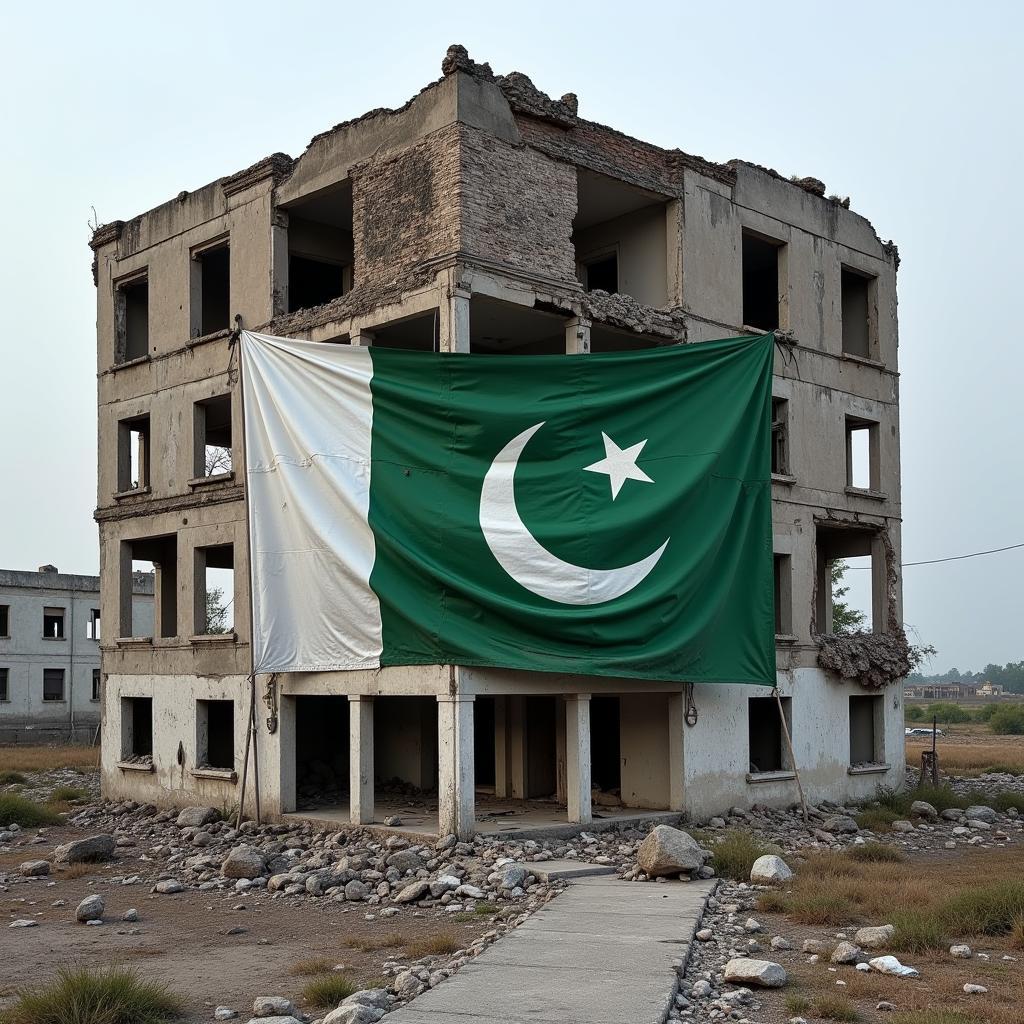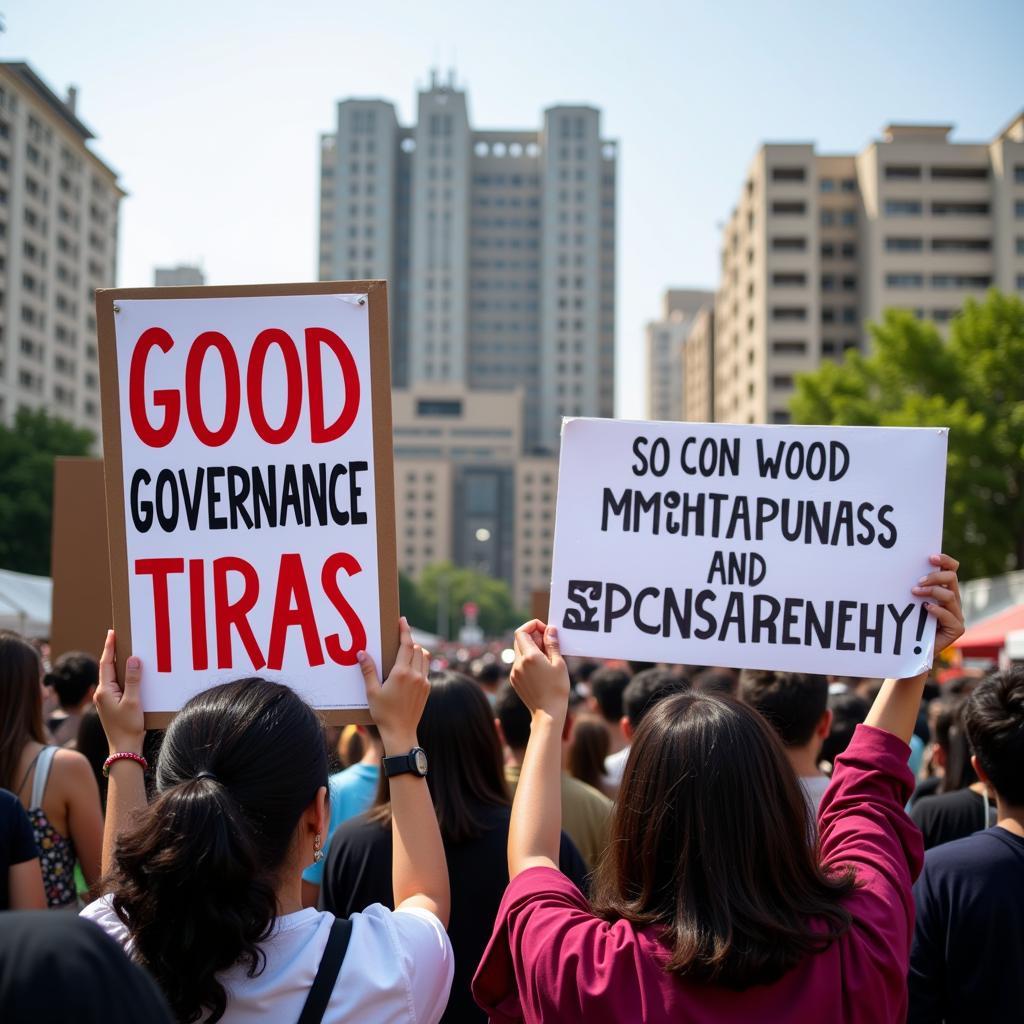Bad governance in Pakistan is a complex issue with far-reaching consequences, impacting various aspects of society and hindering national development. This article explores the multifaceted nature of bad governance, its underlying causes, and the potential solutions for a more prosperous Pakistan.
The Multifaceted Nature of Bad Governance in Pakistan
Bad governance manifests in numerous forms, from corruption and lack of transparency to weak institutions and ineffective service delivery. Its impact permeates daily life, affecting access to basic necessities like education, healthcare, and justice. This creates a cycle of poverty and inequality, further exacerbating the challenges faced by marginalized communities. The lack of accountability allows those in power to act with impunity, eroding public trust and hindering economic growth.
Corruption and Lack of Transparency
Corruption is a significant impediment to good governance. It diverts resources away from essential services, undermining public trust and hindering economic development. Lack of transparency in government operations further exacerbates this issue, creating an environment where corruption can thrive unchecked.
Weak Institutions and Ineffective Service Delivery
Weak institutions and ineffective service delivery are hallmarks of bad governance. This leads to a breakdown in public services, leaving citizens without access to essential resources and undermining the rule of law.  Weak Institutions in Pakistan: A Symbolic Representation The lack of effective regulatory frameworks allows for exploitation and further entrenches inequality.
Weak Institutions in Pakistan: A Symbolic Representation The lack of effective regulatory frameworks allows for exploitation and further entrenches inequality.
Root Causes of Bad Governance in Pakistan
Understanding the root causes of bad governance is crucial to developing effective solutions. These causes are complex and interconnected, encompassing political, economic, and social factors.
Political Instability and Lack of Accountability
Political instability and lack of accountability contribute significantly to bad governance. Frequent changes in government and a lack of oversight create an environment where corruption can flourish and institutions are weakened.
Economic Inequality and Lack of Resources
Economic inequality and lack of resources further exacerbate the issue of bad governance. Limited resources are often mismanaged, further disadvantaging marginalized communities and perpetuating the cycle of poverty.
Social Divisions and Lack of Civic Engagement
Social divisions and lack of civic engagement hinder efforts to address bad governance. A fragmented society with limited participation in civic processes creates an environment where accountability is difficult to achieve.
Solutions for a Better Future: Addressing Bad Governance in Pakistan
Addressing bad governance requires a multi-pronged approach that involves strengthening institutions, promoting transparency, and fostering citizen participation. contemporary issues of pakistan
Strengthening Institutions and Promoting Rule of Law
Strengthening institutions and promoting the rule of law are essential for combating bad governance. This involves enhancing the capacity of government agencies, ensuring judicial independence, and promoting a culture of accountability. Independent oversight bodies and anti-corruption mechanisms can play a vital role in holding those in power accountable.
Enhancing Transparency and Accountability
Transparency and accountability are cornerstones of good governance. Open government initiatives and access to information can empower citizens to hold their leaders accountable and demand better service delivery.
Promoting Civic Engagement and Citizen Participation
Promoting civic engagement and citizen participation is crucial for creating a more just and equitable society. Educated and engaged citizens can play a vital role in demanding better governance and holding their leaders accountable.  Civic Engagement in Pakistan: Visual Representation
Civic Engagement in Pakistan: Visual Representation
Conclusion
Bad governance in Pakistan demands urgent attention. By addressing the root causes and implementing effective solutions, Pakistan can move towards a future of greater stability, prosperity, and justice. Tackling bad governance is not just a governmental responsibility, it requires a collective effort from all stakeholders, including citizens, civil society organizations, and the international community.
FAQs
- What are the main forms of bad governance in Pakistan?
- How does corruption impact governance in Pakistan?
- What are the long-term consequences of bad governance?
- What role can citizens play in promoting good governance?
- What are some successful examples of good governance initiatives in Pakistan?
- How can international organizations support good governance efforts in Pakistan?
- What are the challenges in implementing good governance reforms in Pakistan?
Scenarios illustrating Bad Governance related questions:
-
Scenario: A citizen tries to obtain a building permit but is asked for a bribe. Question: Where can citizens report incidents of bribery and corruption related to government services?
-
Scenario: A local government project is significantly delayed and over budget. Question: How can citizens access information about government spending and project timelines?
-
Scenario: A community lacks access to clean drinking water. Question: What channels are available for citizens to voice their concerns about inadequate public services?
Further Resources:
For more information on contemporary issues of Pakistan, please visit contemporary issues of pakistan.
Contact Us
For further assistance regarding Bad Governance In Pakistan Pdf or related queries, contact us at:
Phone Number: +923337849799
Email: [email protected]
Address: Dera Ghazi Khan Rd, Rakhni, Barkhan, Balochistan, Pakistan.
Our customer service team is available 24/7.